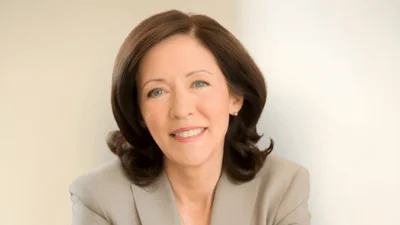Washington D.C. -Today, Rep. Raja Krishnamoorthi, the Chairman of the Subcommittee on Economic and Consumer Policy, held a bipartisan hearing to examine the nation’s system for securing transplant organs for patients suffering from organ failure.
“Too many Americans, over 107,000, are on an organ waitlist. Too many, 33 every day, pass away before an organ becomes available. Simply put, we need to get better at recovering every viable organ because each one saves a life," said Chairman Krishnamoorthi. “Organ Procurement Organizations, or ‘OPOs,’ are responsible for organs obtained from deceased donors, which account for over 80% of transplants. For far too long, OPOs have faced no outside incentive to perform, evaded public scrutiny, refused to reveal data showing their success and failure; and hid behind a wall of jargon and obfuscation. For the patients who are ailing, I will not let OPOs keep failing them. Saving lives is above politics, and OPO reform is a bipartisan issue. Ranking Member Cloud and I are in this together."
The Subcommittee heard testimony from Tonya Ingram and LaQuayia Goldring, patients waiting for a transplant; Dr. Dara Kass, a living donor and mother of a transplant recipient; Steve Miller,
Chief Executive Officer of the Association for Organ Procurement Organizations (AOPO); Joe Ferreira, President of AOPO and Chief Executive Officer of Nevada Donor Network; Matt Wadsworth, President and CEO of Life Connection of Ohio; Dr. Seth Karp, Director of the Vanderbilt Transplant Center; and Donna Cryer, President and CEO of the Global Liver Institute.
There is an urgent need for more organs for transplant, and the long-term effects of the coronavirus pandemic are likely to create more need in the coming years. Transparency, oversight, and reform is needed to improve the performance of OPOs responsible for securing deceased-donor organs, so that we can save more lives of patients waiting for transplants.
* Ranking Member Michael Cloud noted a study finding that there could be as many as 28,000 more organs for transplant each year that OPO efforts could obtain if they were more competent.
* Mr. Wadsworth stated that with fresh leadership, OPOs could begin to improve under new objective metrics “tomorrow." He testified that in two years his OPO, Life Connection of Ohio, is on track to double the number of organs transplanted annually.
OPOs have a history of poor performance and mismanagement, and they have passed costs for unnecessary luxury items onto taxpayers. For years they have evaded oversight and accountability-until Congress started investigating.
* Joe Ferreira, AOPO President, admitted before the Subcommittee that his OPO, Nevada Donor Network, pays for season tickets to the NFL’s Las Vegas Raiders and the NHL’s Las Vegas Golden Knights, and pays for lavish board retreats to Sonoma and Napa Valley. When asked whether his OPO pays for each of these lavish expenses, Ferreira testified each time: “That is correct."
* Rep. Cori Bush identified that OneLegacy in Los Angeles hoarded over $110 million in reserves, and called on OPOs to start “deploying that money to train staff on outreach, best practices, and ensuring staffing is sufficient to visit potential donor families."
* In response to questioning by Rep. Katie Porter, Steve Miller, AOPO CEO, acknowledged that he lacks a “deep understanding" of the inadequate accountability metrics he has lobbied to keep in place.
The burdens of our dysfunctional organ donation and transplant system and OPO failures fall disproportionately on patients of color.
* “Equity matters, ethically, scientifically and by law. People of color are 1.5 - 4 times more likely to have conditions leading to kidney and liver failure but less likely to receive transplants," Ms. Cryer testified. “Multiple surveys and research studies have shown that OPO staff are less likely to approach families of color for consent, have less frequent conversations, spend less time in those conversations, and demonstrate bias in assumptions of who would be eligible or willing to donate."
* The Association for Organ Procurement Organizations, the trade group covering all OPOs, committed during the hearing to stop advocating for racist metrics that cover up how poorly OPOs serve communities of color. Miller admitted that “the system needs to get better," and committed that AOPO would “stop advocating for racial risk adjustments."
The Subcommittee on Economic and Consumer Policy has been investigating poor performance, waste, and mismanagement by OPOs. The failures of these organizations are costing thousands of lives each year.








